2,5-Di-tert-butyl-1,4-benzoquinone
- CAS NO.:2460-77-7
- Empirical Formula: C14H20O2
- Molecular Weight: 220.31
- MDL number: MFCD00019442
- EINECS: 219-552-0
- SAFETY DATA SHEET (SDS)
- Update Date: 2024-12-18 14:08:57
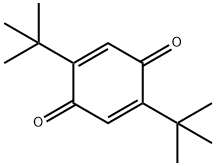
What is 2,5-Di-tert-butyl-1,4-benzoquinone?
Chemical properties
Yellow to golden crystalline powder
Definition
ChEBI: 2,5-di-tert-Butyl-1,4-benzoquinone is a member of p-quinones and a member of benzoquinones.
Synthesis Reference(s)
The Journal of Organic Chemistry, 46, p. 4545, 1981 DOI: 10.1021/jo00335a045
Synthetic Communications, 10, p. 615, 1980 DOI: 10.1080/00397918008063598
Tetrahedron Letters, 35, p. 5083, 1994 DOI: 10.1016/S0040-4039(00)73327-2
General Description
2,5-Di-tert-butyl-1,4-benzoquinone (DTBBQ) is an 2,5-disubstituted quinone. It is an antibacterial compound. It has been isolated from marine Streptomyces sp. VITVSK1. Pressure dependance on the intramolecular and intermolecular migration rates of Na+ and K+ in a 2,5-di-tert-butyl-1,4-benzoquinone ion pair have been evaluated by using a high-pressure EPR technique.
Flammability and Explosibility
Flammable
Properties of 2,5-Di-tert-butyl-1,4-benzoquinone
| Melting point: | 152-154 °C (lit.) |
| Boiling point: | 321.25°C (rough estimate) |
| Density | 1.0106 (rough estimate) |
| vapor pressure | 0.241Pa at 20℃ |
| refractive index | 1.4970 (estimate) |
| storage temp. | Sealed in dry,Room Temperature |
| form | powder to crystal |
| color | White to Yellow to Orange |
| Water Solubility | 18.716mg/L at 25℃ |
| BRN | 2047945 |
| CAS DataBase Reference | 2460-77-7(CAS DataBase Reference) |
| EPA Substance Registry System | 2,5-Cyclohexadiene-1,4-dione, 2,5-bis(1,1-dimethylethyl)- (2460-77-7) |
Safety information for 2,5-Di-tert-butyl-1,4-benzoquinone
| Signal word | Warning |
| Pictogram(s) |
 Exclamation Mark Irritant GHS07 |
| GHS Hazard Statements |
H315:Skin corrosion/irritation H319:Serious eye damage/eye irritation H335:Specific target organ toxicity, single exposure;Respiratory tract irritation |
| Precautionary Statement Codes |
P261:Avoid breathing dust/fume/gas/mist/vapours/spray. P264:Wash hands thoroughly after handling. P264:Wash skin thouroughly after handling. P271:Use only outdoors or in a well-ventilated area. P280:Wear protective gloves/protective clothing/eye protection/face protection. P302+P352:IF ON SKIN: wash with plenty of soap and water. P305+P351+P338:IF IN EYES: Rinse cautiously with water for several minutes. Remove contact lenses, if present and easy to do. Continuerinsing. |
Computed Descriptors for 2,5-Di-tert-butyl-1,4-benzoquinone
2,5-Di-tert-butyl-1,4-benzoquinone manufacturer
Yasho Industries Ltd
New Products
Tert-butyl bis(2-chloroethyl)carbamate 4-Methylphenylacetic acid N-Boc-D-alaninol N-BOC-D/L-ALANINOL 3-Morpholino-1-(4-nitrophenyl)-5,6-dihydropyridin- 2(1H)-one Furan-2,5-Dicarboxylic Acid Tropic acid DIETHYL AMINOMALONATE HYDROCHLORIDE 1,1’-CARBONYLDIIMIDAZOLE R-2-BENZYLOXY PROPIONIC ACID 1,1’-CARBONYLDI (1,2-4 TRIAZOLE) N-METHYL INDAZOLE-3-CARBOXYLIC ACID (2-Hydroxyphenyl)acetonitrile 4-Bromopyrazole 5-BROMO-2CYANO PYRIDINE 5,6-Dimethoxyindanone 5-broMo-2-chloro-N-cyclopentylpyriMidin-4-aMine 2-(Cyanocyclohexyl)acetic acid 4-methoxy-3,5-dinitropyridine 2-aminopropyl benzoate hydrochloride 1-(4-(aminomethyl)benzyl)urea hydrochloride diethyl 2-(2-((tertbutoxycarbonyl)amino) ethyl)malonate tert-butyl 4- (ureidomethyl)benzylcarbamate Ethyl-2-chloro((4-methoxyphenyl)hydrazono)acetateRelated products of tetrahydrofuran

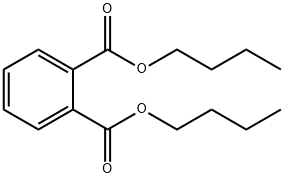

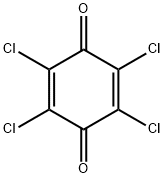
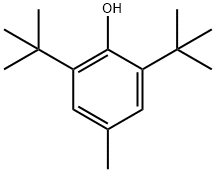


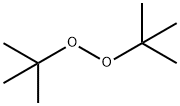
You may like
-
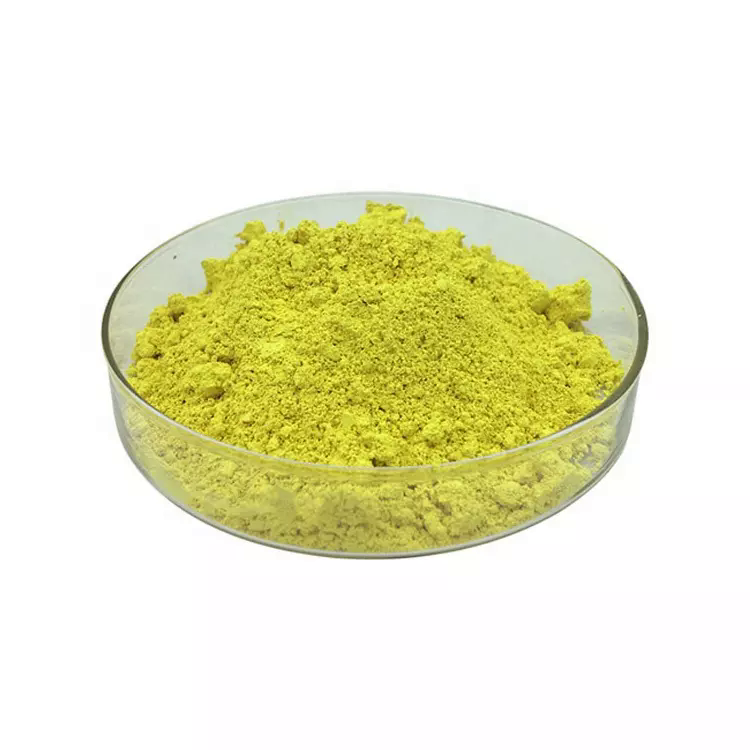 2460-77-7 2,5-Di-tert-butyl-p-benzoquinone 98%View Details
2460-77-7 2,5-Di-tert-butyl-p-benzoquinone 98%View Details
2460-77-7 -
 2,5-Di-tert-butyl-p-benzoquinone CAS 2460-77-7View Details
2,5-Di-tert-butyl-p-benzoquinone CAS 2460-77-7View Details
2460-77-7 -
 2,5-Di-tert-butyl-1,4-benzoquinone CAS 2460-77-7View Details
2,5-Di-tert-butyl-1,4-benzoquinone CAS 2460-77-7View Details
2460-77-7 -
 2,5-Di-tert-butyl-1,4-benzoquinone CAS 2460-77-7View Details
2,5-Di-tert-butyl-1,4-benzoquinone CAS 2460-77-7View Details
2460-77-7 -
 1975-50-4 98%View Details
1975-50-4 98%View Details
1975-50-4 -
 14714-50-2 (2-Hydroxyphenyl)acetonitrile 98+View Details
14714-50-2 (2-Hydroxyphenyl)acetonitrile 98+View Details
14714-50-2 -
 118753-70-1 98+View Details
118753-70-1 98+View Details
118753-70-1 -
 733039-20-8 5-broMo-2-chloro-N-cyclopentylpyriMidin-4-aMine 98+View Details
733039-20-8 5-broMo-2-chloro-N-cyclopentylpyriMidin-4-aMine 98+View Details
733039-20-8